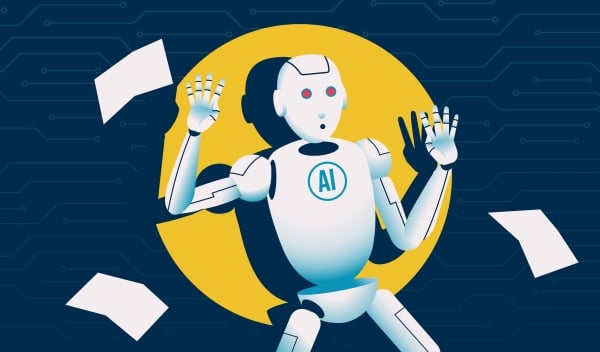With the advancement of technology, the use of artificial intelligence (AI) has become increasingly prevalent in various aspects of life. However, a recent study has found that both students and professors believe that AI will aid cheating in academic settings.
According to the study conducted by researchers at Stanford University, a significant number of students and professors believe that AI will make it easier for students to cheat on exams and assignments. This belief stems from the fact that AI can be used to generate answers to questions, write essays, and even take online tests on behalf of students.
One of the main concerns raised by professors is that AI can be programmed to mimic the writing style of a particular student, making it difficult to detect if the work is actually done by the student or not. This could potentially lead to an increase in academic dishonesty, as students may feel tempted to use AI as a shortcut to completing their assignments.
Furthermore, students also expressed their belief that AI can help them cheat by providing them with access to a vast amount of information that they can use to prepare for exams and quizzes. With AI tools such as chatbots and virtual assistants, students can easily look up answers to questions or seek help with their homework without putting in the effort to learn the material themselves.
While some argue that AI can also be used as a tool to combat cheating by detecting plagiarism and identifying patterns of academic dishonesty, others believe that the technology can be easily manipulated to bypass these safeguards.
In response to these concerns, both students and professors are calling for increased vigilance and stricter measures to prevent cheating with the help of AI. This includes implementing plagiarism detection software, educating students about the consequences of academic dishonesty, and creating a culture of integrity within academic institutions.
In conclusion, while AI brings about many benefits and opportunities for innovation in the field of education, it also poses challenges in terms of academic integrity. It is important for educators and students alike to be aware of the risks associated with the use of AI in academic settings and work together to ensure that cheating is not facilitated by this technology. By staying vigilant and upholding high standards of ethical conduct, we can ensure that AI continues to be a positive force in education.



